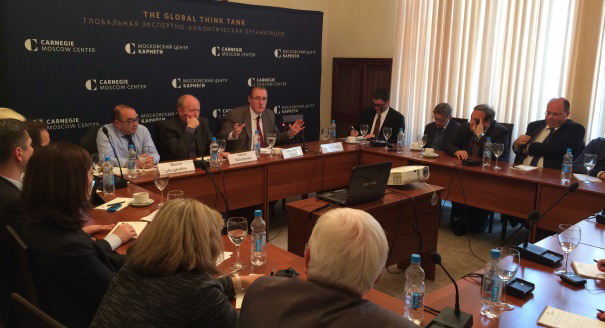Registration
You will receive an email confirming your registration.
In light of the crisis in Syria, and as part of its mandate to promote democracy and development in the region, the United Nations Economic and Social Commission for Western Asia (UN-ESCWA) has initiated a program named The National Agenda for the Future of Syria (NAFS).
The Agenda is a platform for hundreds of Syrian experts from all political backgrounds to meet and chart a future vision for Syria along with programs for state rebuilding of Syria.
The Carnegie Moscow Center hosted the presentation of the National Agenda for the Future of Syria. Abdallah Al Dardari, deputy executive secretary of ESCWA and the head of the Syrian team participating in the event, discussed the Agenda. Bassel Kaghadou, programme coordinator for the Agenda, was also among the participants.
Carnegie Moscow Center’s Dmitri Trenin gave the opening remarks. Carnegie Moscow Center’s Alexey Malashenko moderated.
Abdallah Al Dardari
Abdallah Al Dardari is deputy executive secretary of the United Nations Economic and Social Commission for Western Asia (UN-ESCWA).
Bassel Kaghadou
Bassel Kaghadou is the programme coordinator for the National Agenda for the Future of Syria (NAFS).
Dmitri Trenin
Dmitri Trenin, director of the Carnegie Moscow Center, also chairs the research council and the Foreign and Security Policy Program.
Alexey Malashenko
Alexey Malashenko is the chair of the Carnegie Moscow Center’s Religion, Society, and Security Program.
